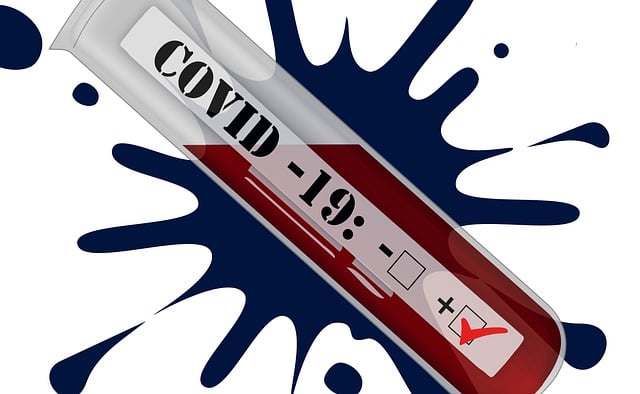Are you considering a testosterone blood test? Understanding accurate testing is crucial for reliable results. This guide delves into everything from the importance of screening, fluctuating hormone levels, and choosing trusted providers. We explore advanced testing methods, interpret results, and emphasize quality assurance measures to ensure valid data.
Whether you’re an athlete, man seeking health management, or researching for knowledge, this resource provides insights on navigating the world of testosterone blood tests.
- Understanding Testosterone Blood Tests: Importance and Basic Facts
- Factors Affecting Testosterone Levels: What You Need to Know
- Choosing Reliable Testosterone Blood Test Providers
- Accurate Testing Methods and Technologies
- Interpreting Results: Understanding Your Testosterone Levels
- Maintaining Trust: Ensuring Quality and Security in Blood Testing
Understanding Testosterone Blood Tests: Importance and Basic Facts
A testosterone blood test is a crucial tool for evaluating an individual’s hormone levels, offering valuable insights into their overall health and well-being, especially for men concerned about low testosterone or those considering hormone replacement therapy. This simple yet powerful diagnostic method measures the amount of testosterone present in the blood, providing a snapshot of hormonal balance at the time of testing.
Understanding the basics is essential; testosterone is a primary sex hormone responsible for various physical and mental health aspects. It plays a pivotal role in muscle mass, bone density, energy levels, and libido. A blood test can detect both total testosterone and free testosterone, the latter being the active form available to bind to receptors in cells. Accurate results from these tests are vital for making informed decisions regarding hormone therapy, ensuring optimal health, and addressing potential deficiencies or imbalances effectively.
Factors Affecting Testosterone Levels: What You Need to Know
Testosterone levels can fluctuate due to a multitude of factors, making it essential to understand what influences them before undergoing a testosterone blood test. Age is one of the primary considerations; as men age, their testosterone production naturally declines. This decrease can vary from individual to individual, and understanding one’s baseline levels at different ages is crucial for accurate interpretations.
Additionally, lifestyle choices play a significant role. Regular exercise and a balanced diet can boost testosterone levels, while stress, inadequate sleep, and excessive alcohol consumption can have the opposite effect. Certain medical conditions, such as thyroid disorders or chronic illnesses, might also impact testosterone production. Knowing these variables helps ensure that any changes in your levels are accurately attributed and addressed during your testosterone blood test results analysis.
Choosing Reliable Testosterone Blood Test Providers
When considering a testosterone blood test, choosing reliable providers is paramount for accurate results. Look for reputable labs that employ validated testing methods and utilize certified, high-quality assays. Reputable providers adhere to strict quality control measures and follow standard operating procedures to ensure precision and reliability.
Additionally, consider providers with experienced and board-certified medical professionals who can offer guidance throughout the process. Transparent communication about sampling procedures, turnaround times, and cost is also a strong indicator of reliability. Opting for well-established, trusted names in the industry ensures peace of mind and the highest level of accuracy for your testosterone blood test results.
Accurate Testing Methods and Technologies
In the realm of accurate testosterone blood tests, advanced testing methods and technologies play a pivotal role in ensuring reliable results. Modern labs employ sophisticated equipment, such as automated analyzers, which precisely measure hormone levels with high sensitivity and specificity. These machines utilize sensitive immunoassay techniques to detect even trace amounts of testosterone, minimizing errors and providing valid data.
Furthermore, standardized protocols and quality control measures are implemented to maintain consistency across tests. This includes using validated test kits, calibrating instruments regularly, and adhering to strict procedures to prevent contamination. Such meticulous attention to detail guarantees that testosterone blood test results are not only accurate but also comparable between different testing facilities, fostering trust in the overall process.
Interpreting Results: Understanding Your Testosterone Levels
Interpreting results from a testosterone blood test is crucial for understanding your levels and making informed decisions about your health. Testosterone, often referred to as the ‘manly hormone,’ plays a significant role in various bodily functions, including muscle mass, bone density, and libido. A normal testosterone range for men typically falls between 300-1000 nanograms per deciliter (ng/dL). Values below this range might indicate low testosterone levels, also known as hypogonadism, which can lead to fatigue, decreased muscle mass, and other health issues. Conversely, elevated testosterone levels could be a cause for concern and may require further medical evaluation.
When reviewing your test results, it’s essential to consider age-related variations. Testosterone levels naturally decline as men age, so comparision to average ranges specific to your age group is crucial. Your healthcare provider can help interpret the data, considering both age and individual factors to determine if your testosterone levels fall within a healthy spectrum. This information is vital in guiding personalized treatment plans or lifestyle adjustments for optimal well-being.
Maintaining Trust: Ensuring Quality and Security in Blood Testing
When seeking reliable results for your testosterone blood test, choosing trusted providers is paramount. By understanding the factors influencing hormone levels and selecting accredited labs utilizing advanced testing methods, you can ensure accurate insights into your health. Remember that maintaining trust in the process guarantees quality and security, empowering you to make informed decisions regarding your well-being. With this knowledge, you’re equipped to navigate the options for a trusted testosterone blood test provider.
